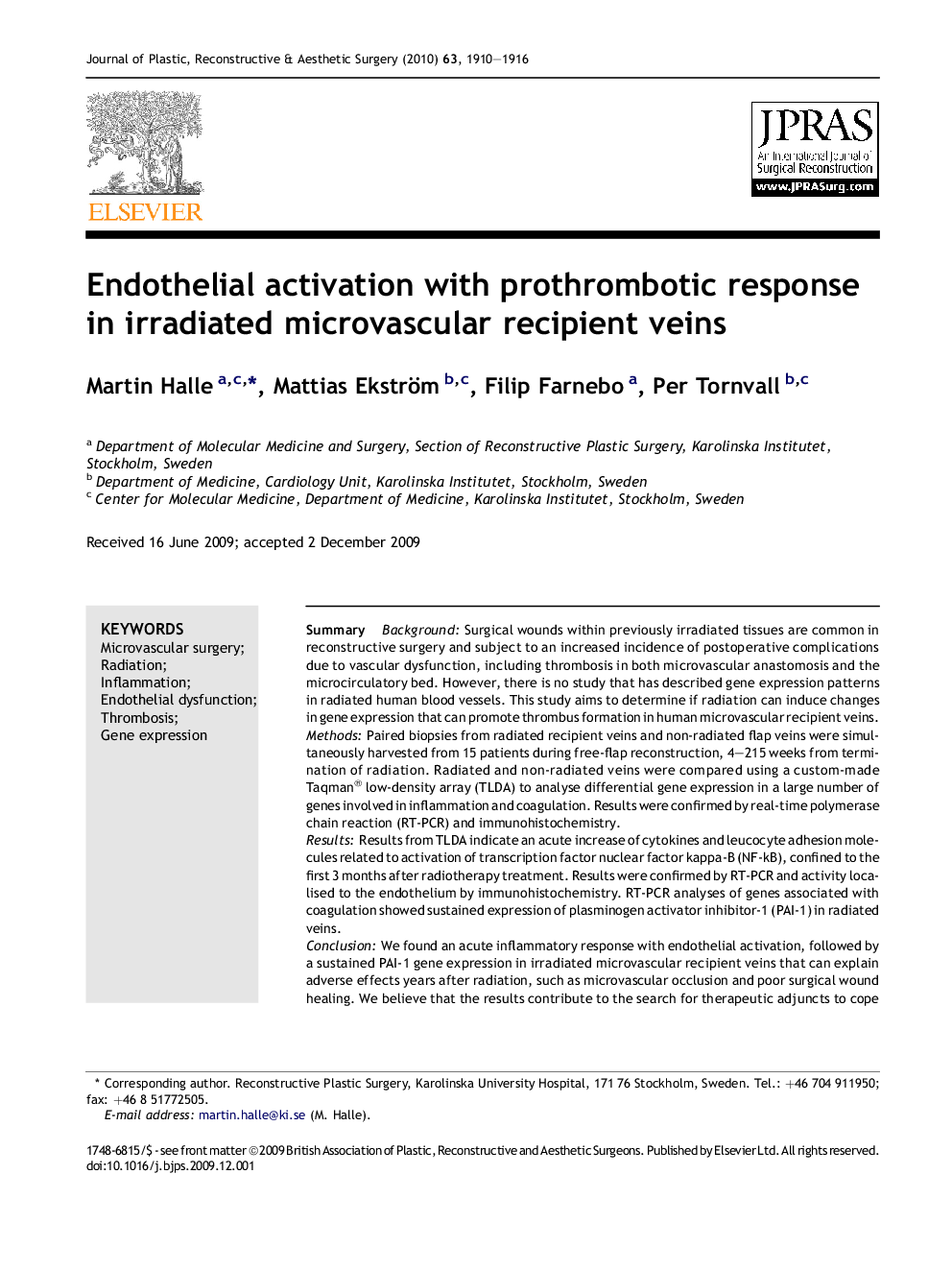| Article ID | Journal | Published Year | Pages | File Type |
|---|---|---|---|---|
| 4121058 | Journal of Plastic, Reconstructive & Aesthetic Surgery | 2010 | 7 Pages |
SummaryBackgroundSurgical wounds within previously irradiated tissues are common in reconstructive surgery and subject to an increased incidence of postoperative complications due to vascular dysfunction, including thrombosis in both microvascular anastomosis and the microcirculatory bed. However, there is no study that has described gene expression patterns in radiated human blood vessels. This study aims to determine if radiation can induce changes in gene expression that can promote thrombus formation in human microvascular recipient veins.MethodsPaired biopsies from radiated recipient veins and non-radiated flap veins were simultaneously harvested from 15 patients during free-flap reconstruction, 4–215 weeks from termination of radiation. Radiated and non-radiated veins were compared using a custom-made Taqman® low-density array (TLDA) to analyse differential gene expression in a large number of genes involved in inflammation and coagulation. Results were confirmed by real-time polymerase chain reaction (RT-PCR) and immunohistochemistry.ResultsResults from TLDA indicate an acute increase of cytokines and leucocyte adhesion molecules related to activation of transcription factor nuclear factor kappa-B (NF-kB), confined to the first 3 months after radiotherapy treatment. Results were confirmed by RT-PCR and activity localised to the endothelium by immunohistochemistry. RT-PCR analyses of genes associated with coagulation showed sustained expression of plasminogen activator inhibitor-1 (PAI-1) in radiated veins.ConclusionWe found an acute inflammatory response with endothelial activation, followed by a sustained PAI-1 gene expression in irradiated microvascular recipient veins that can explain adverse effects years after radiation, such as microvascular occlusion and poor surgical wound healing. We believe that the results contribute to the search for therapeutic adjuncts to cope with the adverse effects of radiation therapy and strongly advocate postoperative, rather than preoperative, radiotherapy whenever possible.
